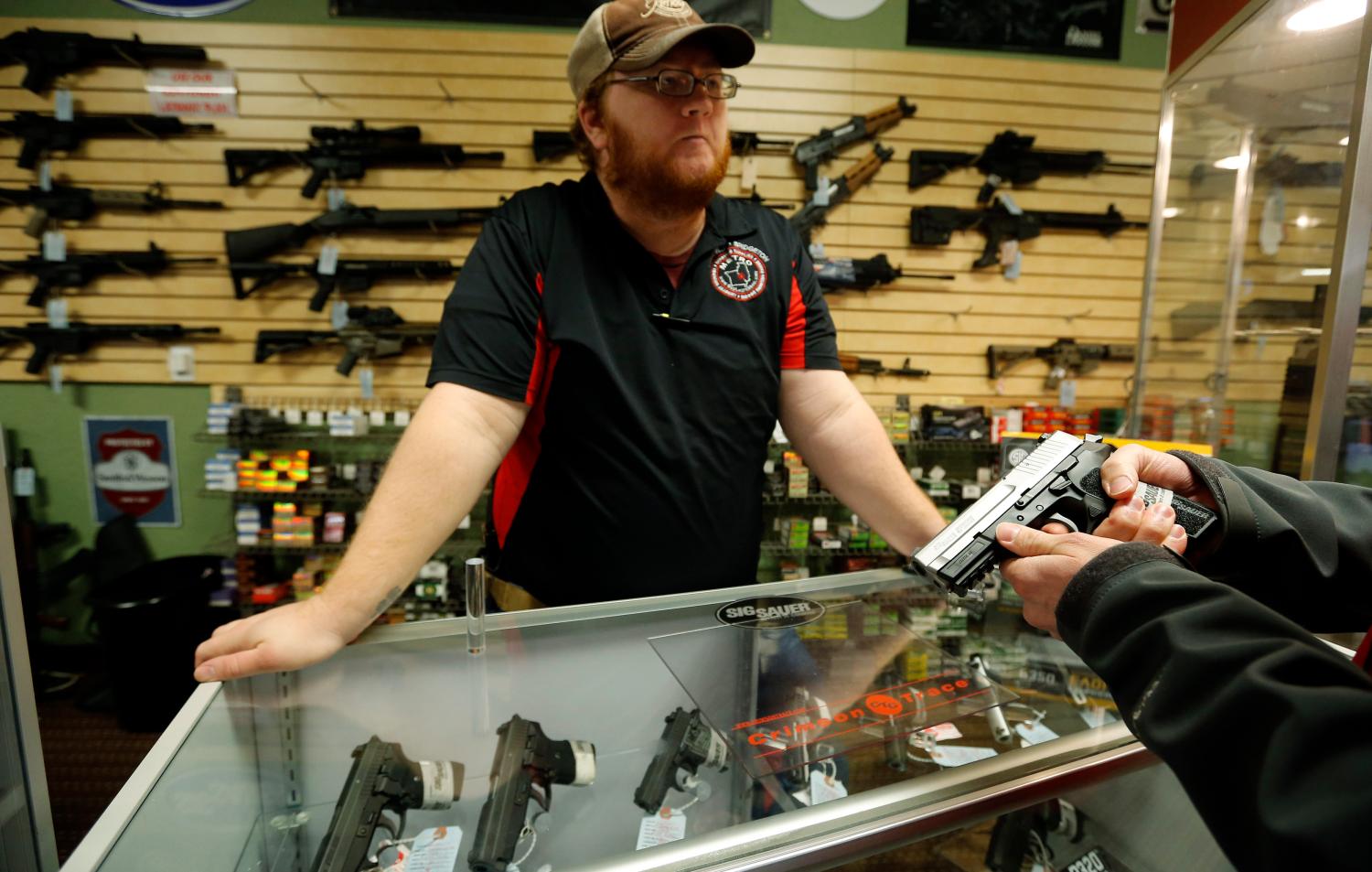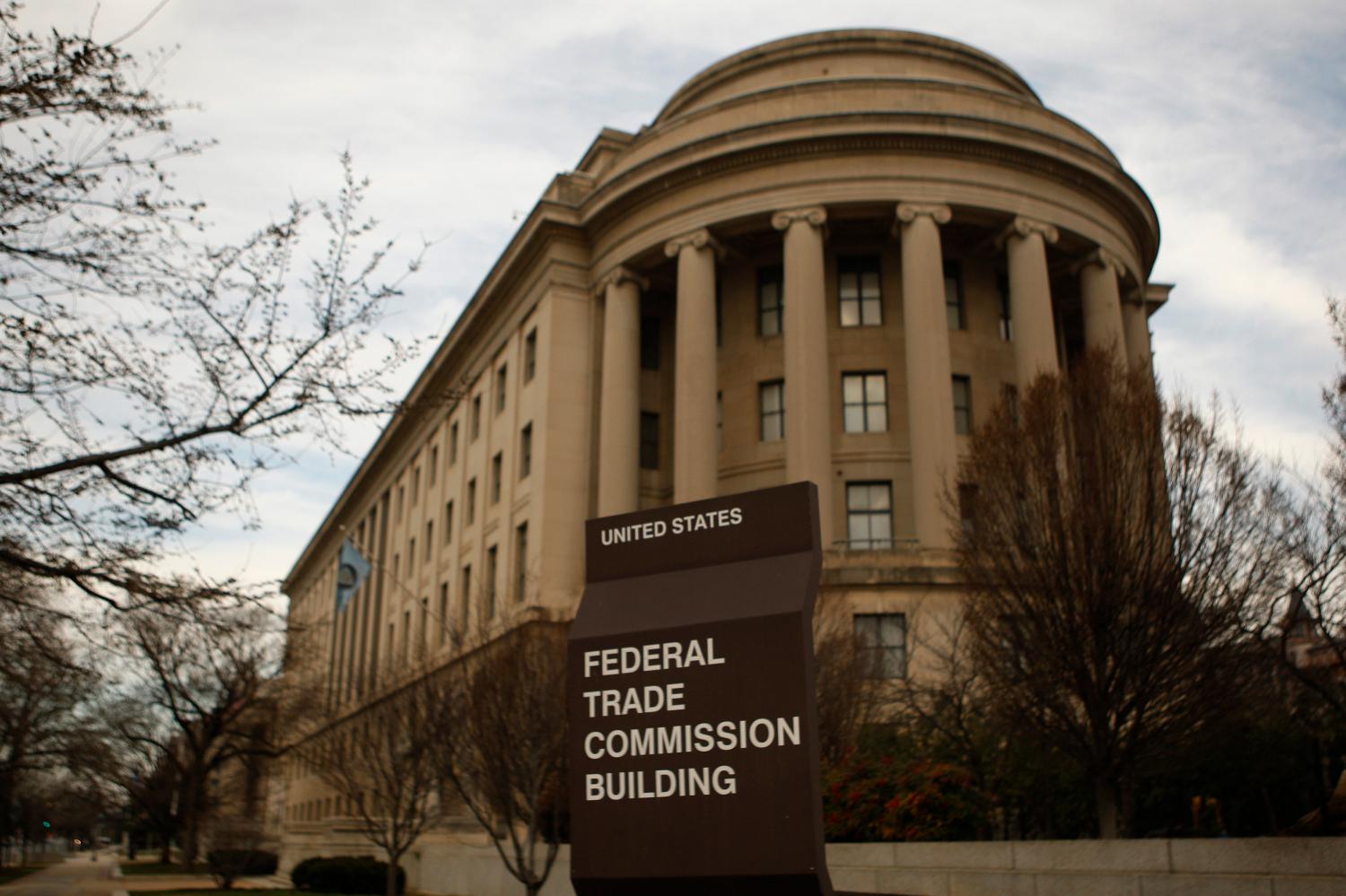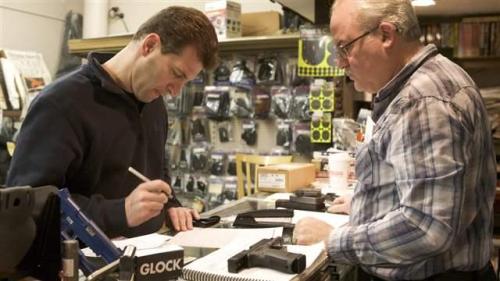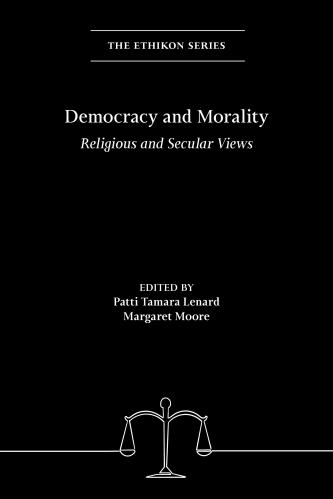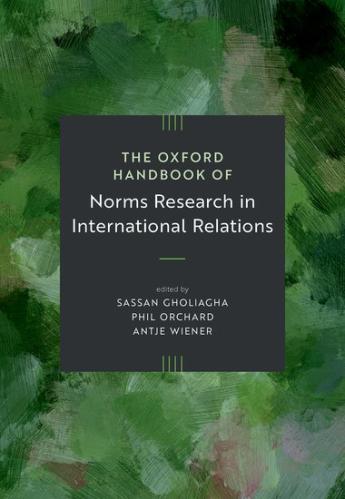This report is part of the Series on Market and Government Failures and was produced by the Brookings Center on Regulation and Markets.
Earlier this year Tennessee and Washington became the first states in the nation to introduce legislation that would create a registry allowing individuals to voluntarily waive their right to purchase firearms. This “no guns” registry would help combat the epidemic of gun suicides. Firearm suicides represent a staggering proportion—roughly two-thirds—of all firearm deaths. In 2010, there were 19,392 firearm suicides, far outpacing the 11,078 firearm homicides and 1,202 accidental annual firearm deaths.
Similar to this legislation, we propose the creation of “no guns” registries that serve as a voluntary commitment device. Like the “no casino gambling” registries that help problem gamblers in several states, a “no guns” registry allows individuals who believe that they may be a risk to themselves or others to voluntarily waive their access to guns. Like the “no gambling” registries that prohibit casinos from paying off anyone who is on the registry list, a “no guns” registry prohibits gun dealers – who must query the NICS (National Instant Criminal Background Check System) – from selling to registrants. What’s more, our proposal acts as a deterrent for registrants, subjecting them to potential criminal prosecution if they are found to be in possession of a firearm.1
There’s an old joke that gun control to a libertarian means aiming the firearm with two hands. But a “no guns” registry is a kind of hands-tying device. It is a form of gun self-control that is deeply libertarian. If you want to keep the option of bearing arms, or if you’re just worried that the registry will be hacked and bad guys will learn that you are unarmed, you don’t have to sign up.

Implementation
Existing federal law allows states to create low-cost registries, and the current federal background check system already allows states to add new categories of covered individuals into the NICS system. People subject to these so-called “state prohibitors” are kept from purchasing weapons because NICS queries uncover and reject any attempted purchase.
Individual states have utilized this option to expand the coverage of prohibited individuals in the NICS. For example, Illinois prohibits people who have voluntarily admitted themselves within the past five years to “a mental health institution for mental health treatment” from purchasing firearms. In effect, Illinois already employs a version of our proposed libertarian gun control. As of 2016, nearly 300,000 individuals in NICS were subject to “state prohibitors” like this one.
Creating a “no guns” registry would allow a state to incapacitate registrants from purchasing guns in any state. Far from creating a huge new federal bureaucracy, our proposal imposes no additional bureaucratic burdens on gun dealers or the Federal government since gun dealers already are required to query the NICS database before completing any firearm sell. Moreover, the federal government has already created the NICS database, in addition to the mechanisms for updating it. States merely have to create a credible mechanism for registration – something already accomplished by online finance and commerce websites, and through government portals administered by the IRS and the Social Security Administration. One state estimated that a “no guns” registry would cost about $230,000 up front, and about $90,000 each year after that.
Rescission and Email Options
Our proposed registry is designed to be libertarian across time because registrants can later choose to rescind their voluntary waiver, effective automatically after three weeks. Thus, registration is the equivalent of a three-week waiting period. Ten states have already required waiting periods of various durations,2 all of which have been upheld by courts. Accordingly, a voluntary waiting period stands on firm constitutional ground.
The design choice to allow automatic rescission has two complimentary rationales. First, many suicides are impulsive, and most people who survive a suicide attempt later wish to continue living.3 One study found that the rate of firearm suicide was 57 times higher among recent handgun buyers than among the general population.4 Therefore, delaying gun acquisition may decrease suicide by removing the favored method of executing a fleeting impulse. Indeed, a 2015 article estimated that states with required waiting periods “had 51% fewer firearm suicides.”5
Second, allowing automatic rescission induces a greater willingness to waive gun-purchasing rights rather than requiring registrants to convince a state judge that they were not a danger to themselves or others. When we surveyed more than a thousand respondents, we found that our respondents were 24% more likely to register when offered the option of automatic rescission than when offered the chance to rescind conditional on a state judge’s approval. This result was even more pronounced among respondents who reported having been previously “diagnosed with a mental disorder.” One can easily understand why these subjects would worry that, because of their mental history, they would have a harder time convincing a judge that they are not a prospective risk to themselves or others. Thus, allowing an automatic (but delayed) exit may be the necessary price of encouraging more initial entry into registration.
Another design dimension of our proposal is that it gives registrants the freedom to credibly communicate their waiver to others by providing email addresses at the time of registration. The registry would alert addressees that the registrant has waived their Second Amendment rights, and also if the registrant later rescinds their initial waiver. This email option provides a practical tool for healthcare professionals. Healthcare professionals already routinely advise patients who are at risk of suicide to dispossess themselves of firearms, but with a registry they can do more. Instead of just jawboning, physicians can help enroll patients and their loved ones in the registry, a performative act in and of itself that subjects registrants to new legal duties and rights. Moreover, by including a healthcare professional in the email list, registrants give health caregivers a three-week warning before a rescission becomes effective, giving a psychiatrist the chance to then reach out and assess whether the patient is in danger. Such rescission-triggered inquiries might easily become part of the standard of care.
Delaying gun acquisition may decrease suicide by removing the favored method of executing a fleeting impulse.
More generally, the email option creates the potential for an “associational marketplace.” For example, some parents may be unwilling to let their kids have play dates at your house if you have not waived your Second Amendment right. The email option provides a credible signaling mechanism for a gun-free household. People are already free to contract over the gun-bearing capacity of others. Tenant associations, for example, are free to either require or prohibit tenant gun possession. A co-op that requires gun ownership can simply ask tenants to show their gun, but it is harder to prove that tenants of a gun-free co-op are in fact unarmed. The email option helps to level the evidentiary playing field, because co-ops who receive a registry confirmation of the waiver know that the registrant is incapacitated from buying a gun and could be criminally prosecuted if found in possession. A mere contractual promise not to have a weapon can’t accomplish either of these effects.
Self-Defense and Discrimination
Justice Antonin Scalia in his District of Columbia v. Heller opinion found that “the central component” of the individual right to bear arms was the more foundational right to self-defense.6 But one way that individuals might choose to protect themselves is by disassociating with people who bear arms. Indeed, the right to disassociate is constitutionally at its strongest when the person disassociating is making a decision about how to best defend their home – as Heller explained, “the need for defense of self, family, and property is most acute.” Thus, our email option makes Second Amendment firearm rights contend with First Amendment associational rights, and our associational marketplace makes one person’s self-defense preferences contend with another person’s constitutionally-equal self-defense preferences.
While it could be the case that one person’s associational preference might be experienced by another as coercion and discrimination based on the exercise of a constitutional right, our model statute prohibits commercial discrimination based on a waiver unless the commercial entity has a sufficiently strong self-defense interest. Using Heller’s emphasis on self-defense as the basis for circumscribing the associational right, our proposal would only allow those who live on or near the potential waiver’s residence, or those who have a property or insurance interest in the potential waiver’s residence or life, to condition their willingness to contract on waiver. Landlords, who at times have to collect late rent, have a plausible self-defense interest in having unarmed tenants. Likewise, life and property insurers have sufficient property interests in the potential waiver’s residence and/or continued life to justify conditioning insurance on an individual’s waiver status. But our proposal does not allow bakeries or even employers to refuse to contract because of the lack of a waiver. The very term “going postal” derives from the possibility that (postal) employees might bring their guns to work. A reasonable employer might decide that employee gun possession makes the work place less safe. Nonetheless, our proposal would prohibit employment discrimination on this basis. While employers’ interests have a similar type of self-defense interest, we believe that it is sufficiently attenuated to warrant different treatment (especially given that Heller privileged defense of home).
Of course, other design choices can be made regarding informed association. For example, it is possible to jettison the email option and instead have a confidential registry with no possibility of confirming one’s waiver.7The bill introduced by Senator Jamie Pedersen in Washington provides an even more inventive alternative. It retains the email option but would send emails only if a registrant seeks rescission. The genius of back-end notification is that it eliminates the possibility of “coercion,” for example, by a condo association that wishes to block sales to anyone who hasn’t proved that they have registered. But the Washington statute also retains the suicide prevention benefit of potentially warning friends, family, and healthcare professionals that a registrant has requested rescission, providing them with a three-week window to inquire into the mental health of the now-rescinding registrant.
Purchased Waivers
Several governmental programs also condition the receipt of services on giving up the right to purchase firearms. As mentioned above, Illinois prohibits people who voluntarily commit themselves to a mental health institution from purchasing weapons for five years, and the names of these people are automatically added to the NICS database. Several other states have similar voluntary commitment laws. In these states, part of the price of mental health treatment is ceding your right to purchase firearms.
At the federal level, the Obama administration has made the ability of veterans and social security recipients to collect certain types of benefit assistance conditional on the cessation of gun purchasing rights. For example, under the Veterans Affairs Fiduciary Program, veterans and other beneficiaries who are unable to manage their financial affairs can apply to have a fiduciary appointed to them in the management of their benefits. But the Department of Veterans Affairs website contains the following warning:
The Brady Handgun Violence Prevention Act prohibits you from purchasing, possessing, receiving or transporting a firearm or ammunition if you have “been adjudicated as a mental defective or been committed to a mental institution.” In compliance with this act, VA … adds the names to a database called the National Instant Criminal Background Check System (NICS). Gun dealers must check NICS for the name of a potential buyer before selling him/her a firearm. You may be fined and/or imprisoned if you knowingly violate this law. You may apply to VA for relief of firearms prohibitions imposed by the law by submitting your request to the VA. The VA will determine whether such relief is warranted.
As of Dec. 31, 2016, the NICS contained 167,815 active records submitted by the VA under this program. The Social Security Administration in December 2016 also finalized a rule that would have an analogous NICS-enrolling effect for individuals who receive Social Security benefits through a “representative payee.” Beneficiaries who feel they are unable to manage their financial affairs can apply for a representative payee to be appointed, but the 2016 rule would also automatically add the beneficiary’s name to the NICS database.
However, it is far from clear whether people who are unable to manage their financial affairs are unable to manage firearms. In February 2017, President Trump signed a joint resolution invoking the Congressional Review Act to overturn the Social Security regulation, and the House in March 2017 passed an analogous bill (The Veterans 2nd Amendment Protection Act) that would overturn automatic NICS enrollment under its Fiduciary Program.
Reasonable people can oppose voluntary waivers of gun-purchasing rights, where the waiver of the right is a pre-requisite of receiving a government benefit or service. The “no guns” registry, however, is not a condition of receiving some governmental perk and it does not entangle the government in making adjudications about whether, in the offensive language of the federal statute, the waiving individual is “a mental defective.”
In the musical Hamilton, the protagonist repeatedly vows that he is “not throwing away [his] shot,” but reasonable people can at times rationally throw away their right to shoot. People who, during moments of clarity, realize that they might become a risk to themselves or others may want to exercise self-initiated gun control. The stakes here are too high. While current efforts to limit firearm magazine sizes are focused on the roughly 30 annual deaths that result from public mass shootings, a “no guns” registry is a freedom-enhancing intervention that targets a problem that is roughly 600 times larger: the 20,000 annual gun suicides.8
The authors did not receive financial support from any firm or person for this article or from any firm or person with a financial or political interest in this article. Frederick Vars is a board member of the Alabama Suicide Prevention and Resource Coalition. Other than that, they are currently not an officer, director, or board member of any organization with an interest in this article.
-
Footnotes
- An earlier, alternative proposal advanced by one of us would allow self-restriction of purchase rights without affecting the right to possess firearms.
- California, for example, requires gun purchasers to wait 10 days before purchasing any firearm.
- Simon, Thomas R., et al. “Characteristics of impulsive suicide attempts and attempters.” Suicide and Life-Threatening Behavior 32.Supplement to Issue 1 (2001): 49-59.
- G. Wintemute, et al., Mortality among Recent Purchasers of Handguns, N Engl J Med 1999; 341:1583-1589.
- See Michael D. Anestis, et al, The Association Between State Laws Regulating Handgun Ownership and Statewide Suicide Rates, Am. J of Pub. Health (2015).
- District of Columbia v. Heller, 554 U.S. 570, 628 (2008) (stating that the “inherent right of self-defense has been central to the Second Amendment right”). See also McDonald v. City of Chicago, 130 S. Ct. 3020 (2010).
- Such a registry has been proposed. Fred Vars, Self-Defense Against Gun Suicide, 56 B.C.L. Rev. 1465 (2015).
- The annual death toll of public mass shootings is computed by averaging the total number of deaths across the years 1982 – 2017, as reported in the Mother Jones’s Database and the Global Terrorism Database
The Brookings Institution is committed to quality, independence, and impact.
We are supported by a diverse array of funders. In line with our values and policies, each Brookings publication represents the sole views of its author(s).


